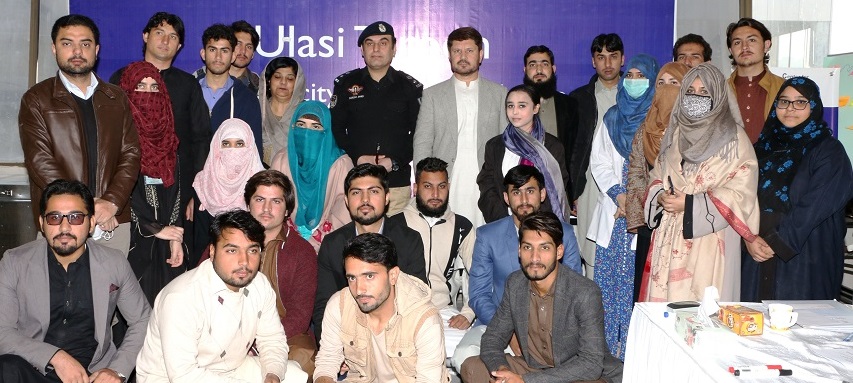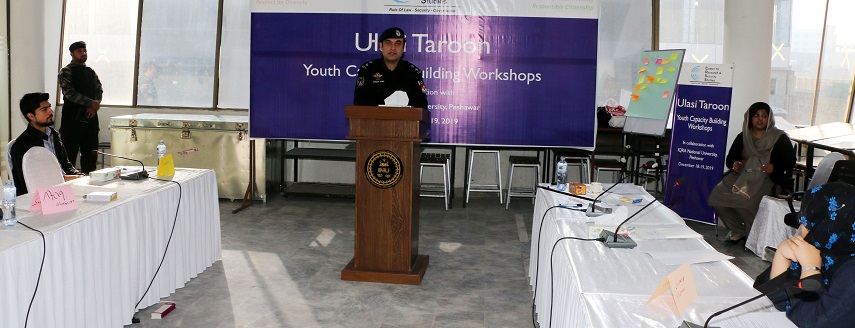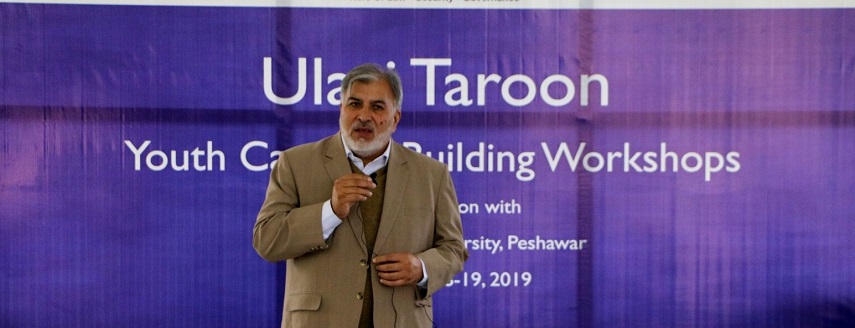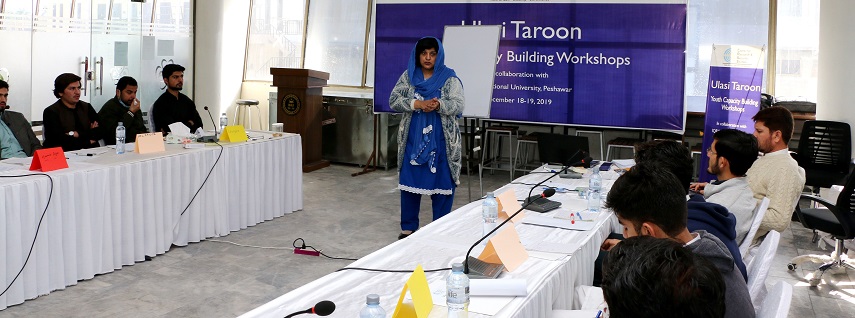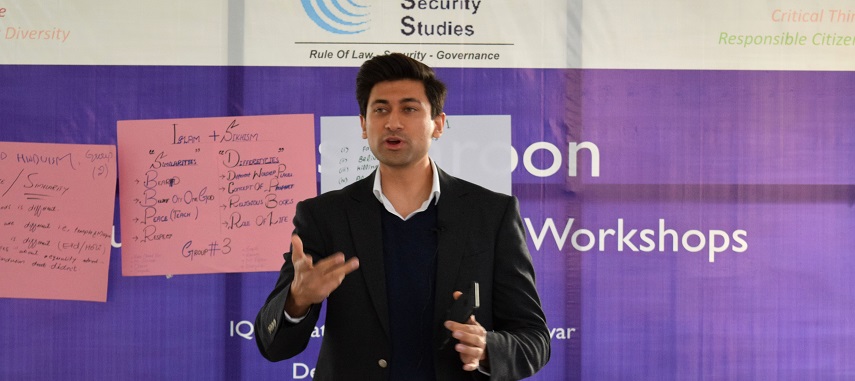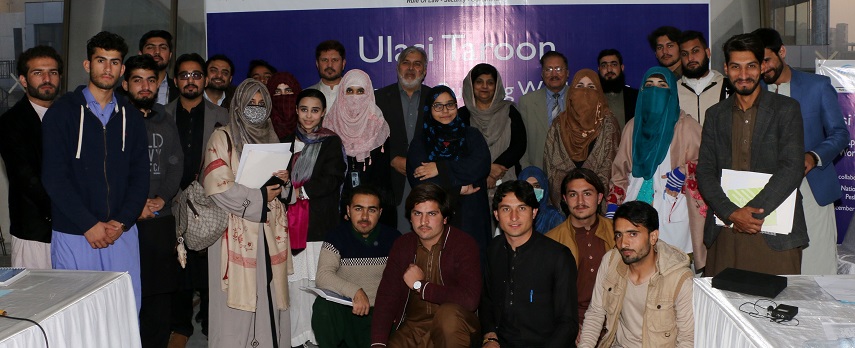Citizens’ knowledge about rules, regulations and law of the land is vital to uphold rule of law in the country. Responsible citizenship means and demands strict adherence to and promotion of rule of law for democratic development of the country. One of the most formidable challenges facing rule of law is the issue of social intolerance. It can easily be ameliorated by cultivating tolerant attitudes in the society; characterized by respect for and acceptance of different and diverse opinions besides celebration of diversity. Addressing the social evils – that jeopardize our social order and fabric – is not the responsibility of police alone and an equal, if not more, onus is on the society.
These views were expressed by Mr. Zahoor Babar Afridi, SSP Operations, Khyber Pakhtunkhwa Police, Peshawar, during the 25th round of Ulasi Taroon Youth Capacity Building Workshops, organized by the Center for Research and Security Studies (CRSS) at and in collaboration with IQRA National University, Peshawar.
Dr. Farzand, Vice Chancellor, IQRA National University, Peshawar, noted that with over 60 percent of the overall population, youth of Pakistan represents a great opportunity for development and prosperity. They have a huge development potential which only needs to be channelized. Educating youth – on the ideals of respect and equality – can alone foster social cohesion and create a critical mass of society critical to peaceful coexistence. There is an important responsibility on the academic fraternity to produce well informed and responsible citizens capable to not only fulfill what the market needs but also meet the peace and cohesion needs of the society.
Dr. Aamir Raza, from the Department of Political Science, University of Peshawar explained that democracy means inclusion of all members of the society where they feel they belong to the society, they are an equal part of it and their feedback in the decision making process matters. In democracy, even citizen is equally important and respectful to the state. Real democracy is about inclusion, transparency, consultation and accountability. Good governance is about the efficient use of resources for addressing the issues of public concern. Both state and government have several powerful and relevant institutions – like parliament, judiciary, etc – whose role is critical to uphold across the board accountability.
Ms. Shagufta Khalique, educationist, said that the universal declaration of human rights completely resonates with our core constitutional values about fundamental rights available to the citizens. Responsible citizenry demands paying respect to fundamental human rights, both in reality and as an essentiality. Pakistan has rich religious, cultural and ethnic diversity and respecting this diversity is critical to peaceful coexistence of the people from these diverse backgrounds. As a matter of social inclusion, every citizen is an important member of a society. So, we must respect people regardless of differences in terms of religion, culture, tradition, color, cast, political views etc. Learning about other faiths can help build interfaith harmony in the society. Inter-religious and intra-religious dialogue at the different forums can ameliorate the misunderstandings about other faiths. Such dialogues can use faiths as connectors in the diverse societies and build better understanding of and address misperceptions about others’ religions.
She said that prerequisites for sustainable conflict resolution are the skills of communication, listening and empathy with refined analytical skill. Youth as future leaders must equip themselves with these skills to be effective peace builders.
Mr. Malik Mustafa, Manager Programs, CRSS said that critical thinking – albeit – is a problem-solving skill but in its true application, it is much more than that. It’s not merely a criticism but a prism and a perspective to look at any situation, where you have a clear vision – critical to inform your decision – of all the potential aspects of that issue. Critical thinking is about developing your understanding and opinion on the basis of all the available information and using research based evidence to support your arguments and ideas.
Youth must comply with the core constitutional values of respect, equality, tolerance and rule of law to foster social cohesion in the society.
Ulasi Taroon is a counter radicalization initiative of CRSS that aims to address the radicalization challenges, extremist ideologies and foster social cohesion through a discourse anchored in the core constitutional values which are fundamentally essential prerequisites for social peace and harmony. The endeavor aims to cultivate and sensitize the youth – in the universities across KP – in the core values in the Pakistani constitution and our social contract. It’s an attempt to highlight the criticality of abiding by these ideals – such as adherence to rule of law, primacy and sanctity of constitution, equal citizenry, responsible citizenship, respect for fundamental human rights, tolerance for diversity and different opinions, inclusive democracy and good governance – as a measure of fostering social cohesion and peaceful co-existence.

